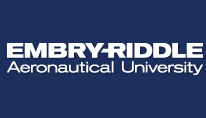Thomas C. Evans Engineering Education Paper Award Engineering Students' Epistemic Cognition in the Context of Problem Solving
Location
Atlantic Room
Start Date
5-3-2018 1:00 PM
End Date
5-3-2018 1:30 PM
Description
One method to address calls to improve engineering education and produce graduates capable of approaching real-world problems and working in rapidly changing, multi-disciplinary environments is by including more open-ended problems throughout students’ undergraduate training. When tackling these open-ended problems, we want students to be critical consumers and creators of knowledge with the skills to interpret resources, build arguments, solve complex problems, and work in multi-disciplinary environments. In order to support students to develop these skills, it is critical that we explore students’ epistemic cognitions, which concerns how people acquire, understand, justify, and use knowledge within the context of open-ended engineering problems. In this presentation, I will describe a mixed-methods study that investigated the relationship between engineering students’ approach to solving an open-ended homework problem and their epistemic cognitions. The outcomes of this work provide an initial framework that identifies factors that influence students’ epistemic cognitions within the classroom and specific elements for engineering instructors to consider within their own classrooms.

Thomas C. Evans Engineering Education Paper Award Engineering Students' Epistemic Cognition in the Context of Problem Solving
Atlantic Room
One method to address calls to improve engineering education and produce graduates capable of approaching real-world problems and working in rapidly changing, multi-disciplinary environments is by including more open-ended problems throughout students’ undergraduate training. When tackling these open-ended problems, we want students to be critical consumers and creators of knowledge with the skills to interpret resources, build arguments, solve complex problems, and work in multi-disciplinary environments. In order to support students to develop these skills, it is critical that we explore students’ epistemic cognitions, which concerns how people acquire, understand, justify, and use knowledge within the context of open-ended engineering problems. In this presentation, I will describe a mixed-methods study that investigated the relationship between engineering students’ approach to solving an open-ended homework problem and their epistemic cognitions. The outcomes of this work provide an initial framework that identifies factors that influence students’ epistemic cognitions within the classroom and specific elements for engineering instructors to consider within their own classrooms.



Comments
Presentation will be during lunch.
Courtney Faber's bio